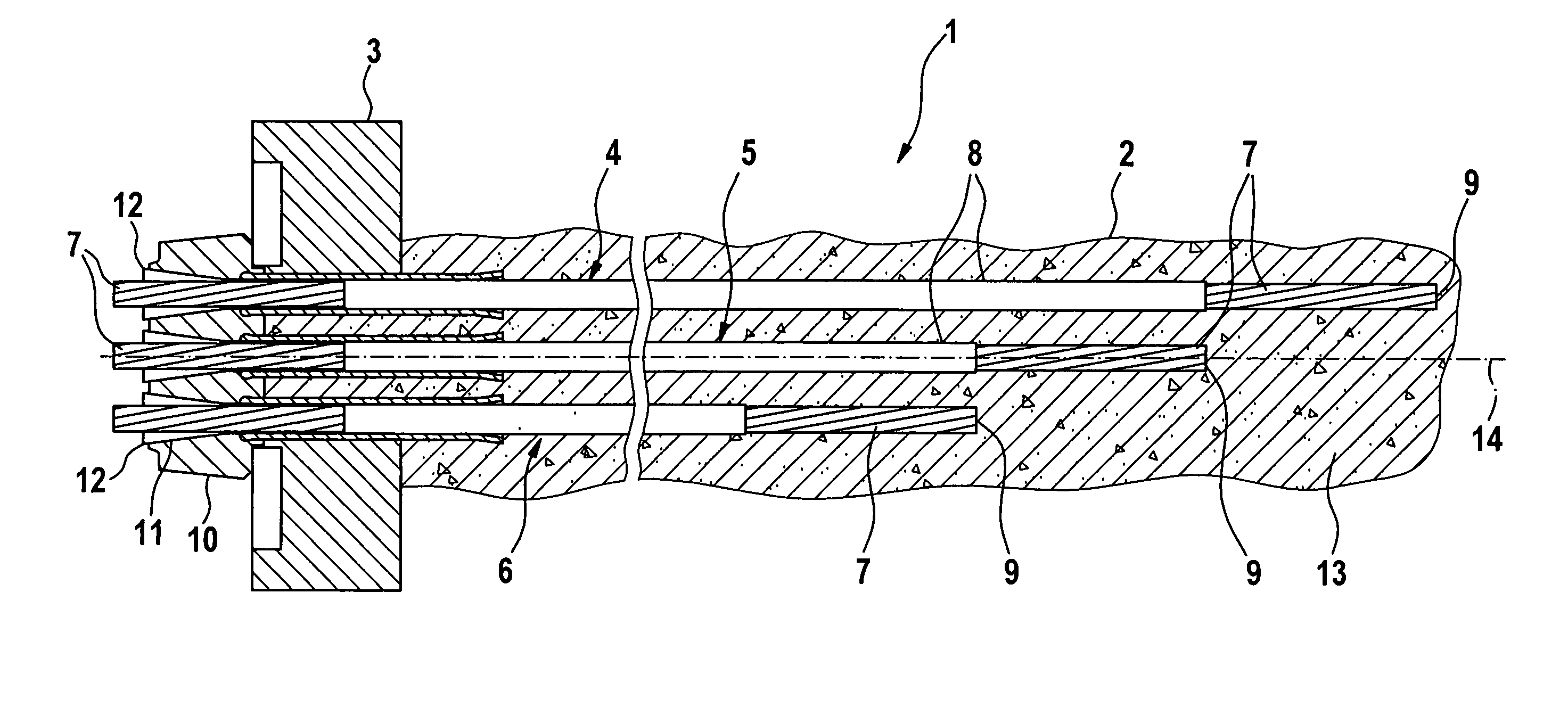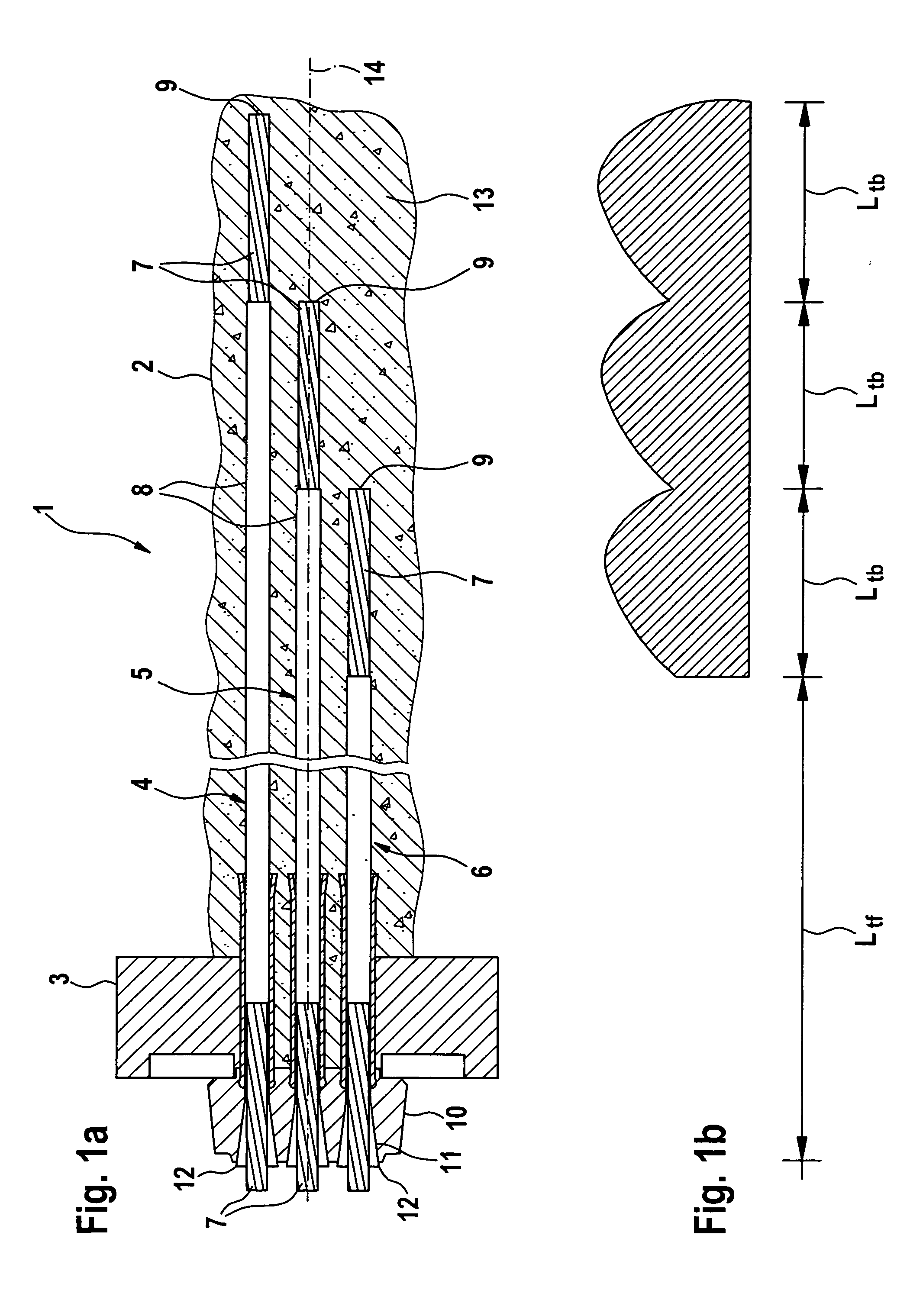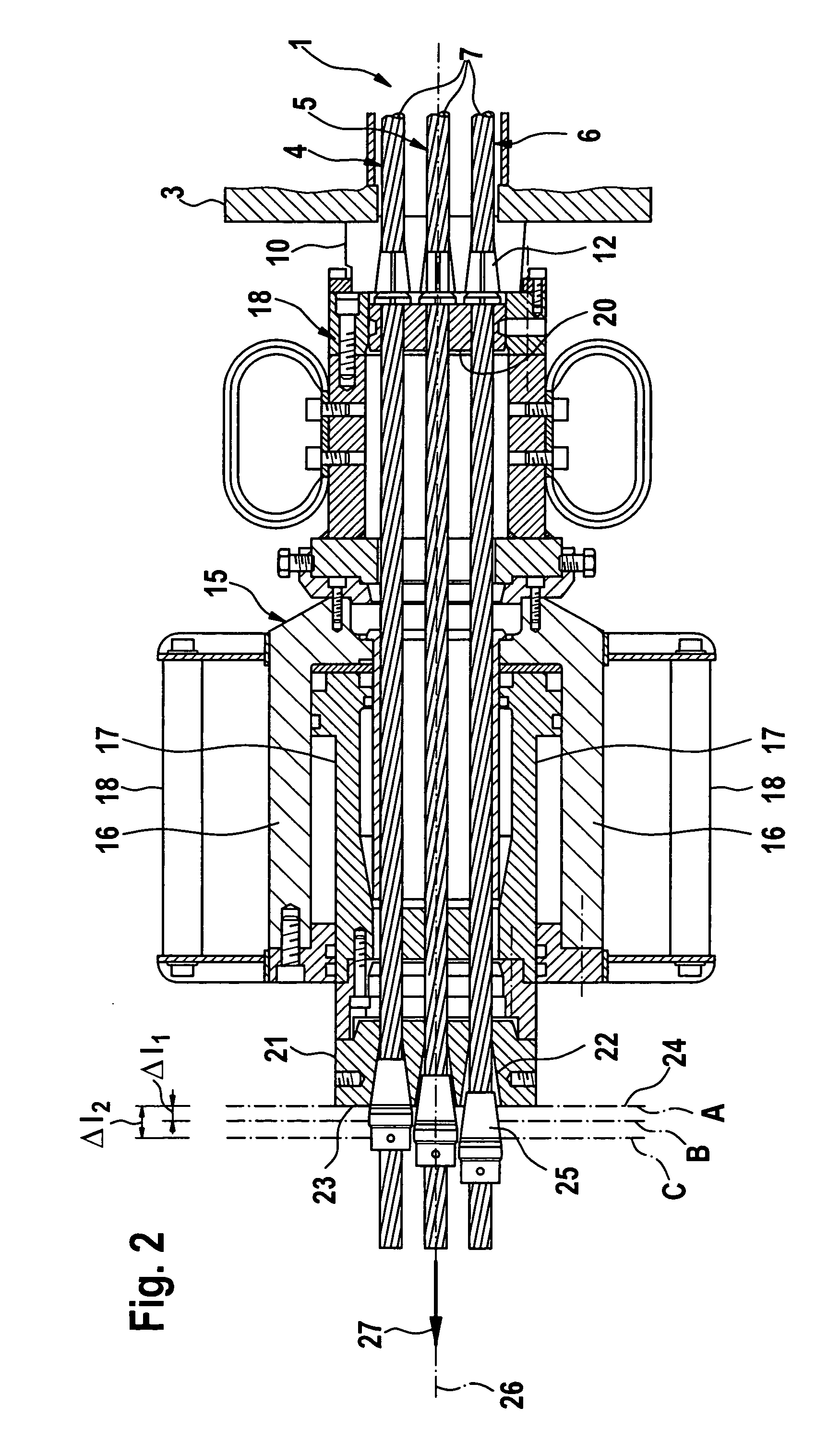Method and arrangement for stressing a staggered anchorage
a staggered anchorage and tensioning technology, applied in mining structures, excavation, foundation engineering, etc., can solve the problems of varying tension states, high cost, and difficulty in adjusting and achieve the effect of improving the load behavior of the staggered anchorage and simplifying the tensioning operation
- Summary
- Abstract
- Description
- Claims
- Application Information
AI Technical Summary
Benefits of technology
Problems solved by technology
Method used
Image
Examples
Embodiment Construction
[0031]FIG. 1 shows a ground anchorage as a staggered anchorage 1 in a service state. The staggered anchorage 1 is guided into a bore hole 2, the top opening of which is enclosed by a base plate 3. The base plate 3 has a central opening, through which the staggered anchorage 1 extends with its above-ground end. A longitudinal axis of the staggered anchorage 1 has the reference numeral 14.
[0032] The staggered anchorage 1 includes a plurality of axis-parallel tension members 4, 5, and 6. Each tension member 4, 5, and 6 has a steel wire strand 7, which along most of its length is provided with a sheathing 8. In contrast, the end 9 of the steel wire strand 7 assigned to the bottom of the bore hole remains bare. Due to the different lengths of the tension members 4, 5, and 6, an arrangement of the ends 9 of the steel wire strands 7 in the bore hole 2 is formed that is staggered in the longitudinal direction 14 of the staggered anchorage 1.
[0033] The opposite, above-ground ends of the te...
PUM
 Login to View More
Login to View More Abstract
Description
Claims
Application Information
 Login to View More
Login to View More - R&D
- Intellectual Property
- Life Sciences
- Materials
- Tech Scout
- Unparalleled Data Quality
- Higher Quality Content
- 60% Fewer Hallucinations
Browse by: Latest US Patents, China's latest patents, Technical Efficacy Thesaurus, Application Domain, Technology Topic, Popular Technical Reports.
© 2025 PatSnap. All rights reserved.Legal|Privacy policy|Modern Slavery Act Transparency Statement|Sitemap|About US| Contact US: help@patsnap.com



